Publications
Articles, publications, books, tools and multimedia features from the U.S. Institute of Peace provide the latest news, analysis, research findings, practitioner guides and reports, all related to the conflict zones and issues that are at the center of the Institute’s work to prevent and reduce violent conflict.
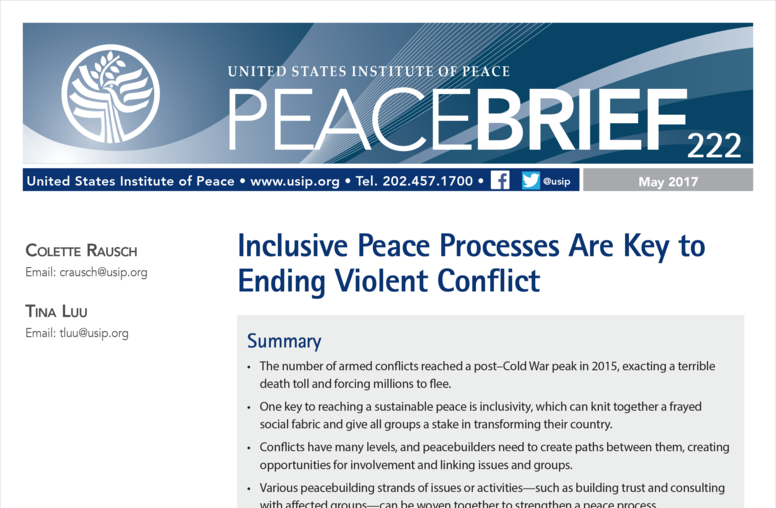
Inclusive Peace Processes Are Key to Ending Violent Conflict
Violent conflict, refugee flows, and internal displacements present international policymakers and practitioners today with unprecedented challenges. Tackling these problems requires not only signed peace agreements but also sustainable peace. It is not enough to bring armed actors to the negotiating table, however. To be effective, the peace process needs to be inclusive and participatory. But what constitutes inclusive participation, and how can peacemakers and peacebuilders achieve it in their own, very different societies? Drawing on discussions in a public forum held in early 2017, this Peace Brief looks at the elements of peacebuilding and explains how critical inclusive participation is to that process.
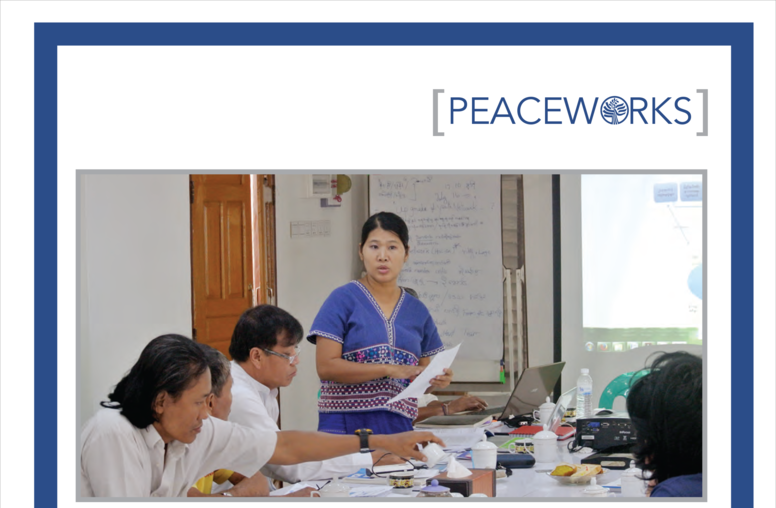
Nonformal Dialogues in National Peacemaking
Nonformal dialogues offer complementary approaches to formal dialogues in national peacemaking efforts in contexts of conflict. As exemplified by the nonformal dialogues in Myanmar, Lebanon, and Nepal examined in this report, nonformal dialogues are able to...
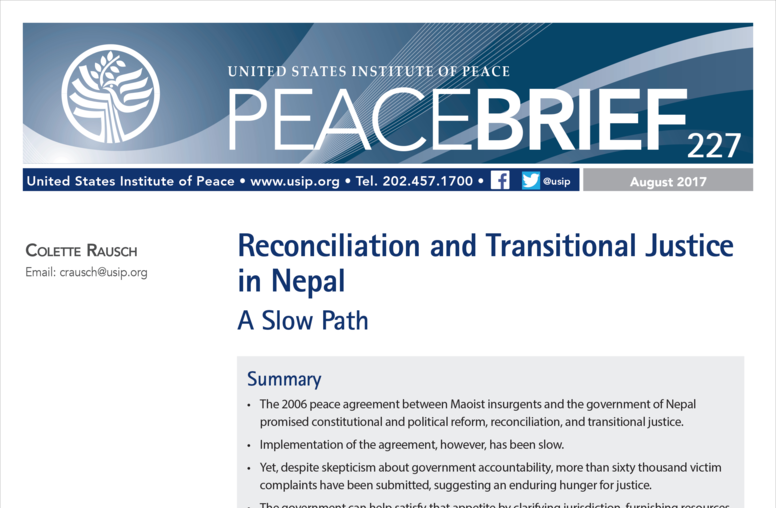
Reconciliation and Transitional Justice in Nepal: A Slow Path
In 2006, the government of Nepal and Maoist insurgents brokered the end of a ten-year civil war that had killed thousands and displaced hundreds of thousands. The ensuing Comprehensive Peace Agreement laid out a path to peace and ushered in a coalition government. Nepal’s people were eager to see the fighting end. Their political leaders, however...
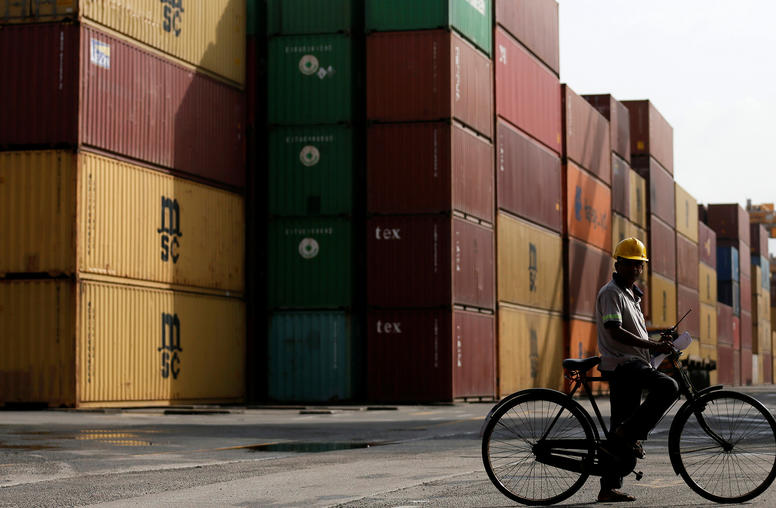
China’s Engagement with Smaller South Asian Countries
When the government of Sri Lanka struggled to repay loans used to build the Hambantota port, it agreed to lease the port back to China for 99 years. Some commentators have suggested that Sri Lanka, as well as other South Asian nations that have funded major infrastructure projects through China’s Belt and Road Initiative, are victims of “China’s debt-trap diplomacy.” This report finds that the reality is...
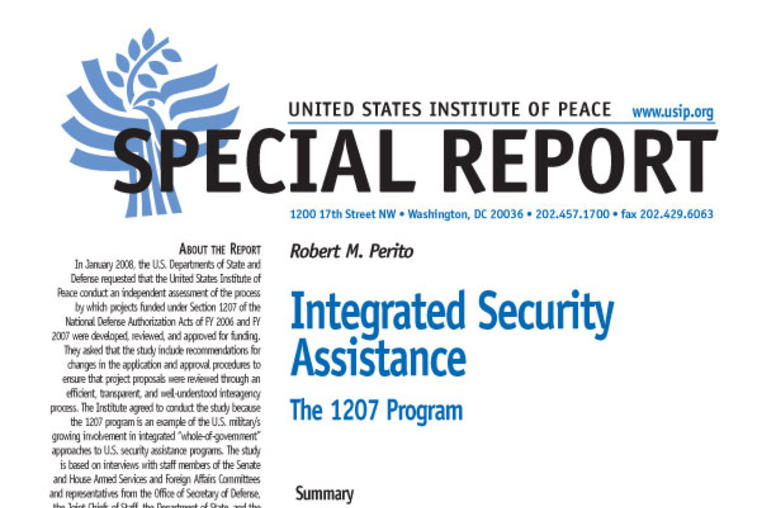
Integrated Security Assistance: The 1207 Program
This Special Report report details USIP's assessment of the "1207 Program," an example of the U.S. military's growing involvement in integrated "whole-of-government" approaches to U.S. security assistance programs.

Facilitating Dialogue
Facilitating Dialogue presents seven case studies of the United States Institute of Peace’s facilitated dialogue efforts in Iraq, Kosovo, Israel/Palestine, Colombia, Nigeria, and Nepal. Covering a variety of conflict situations and peacemaking efforts—from the tribal reconciliation in Mahmoudiya, Iraq, to a justice and security dialogue in Nepal—the cases tell stories of peacebuilding successes, efforts in progress, limitations on what can be achieved, and lessons learned.
Handling Conflict by Peaceful Means
USIP leaders explain the effect that events around the world and here at home will have on the U.S., and the contributions the Institute can and does make during a time of tremendous challenge – and opportunity.
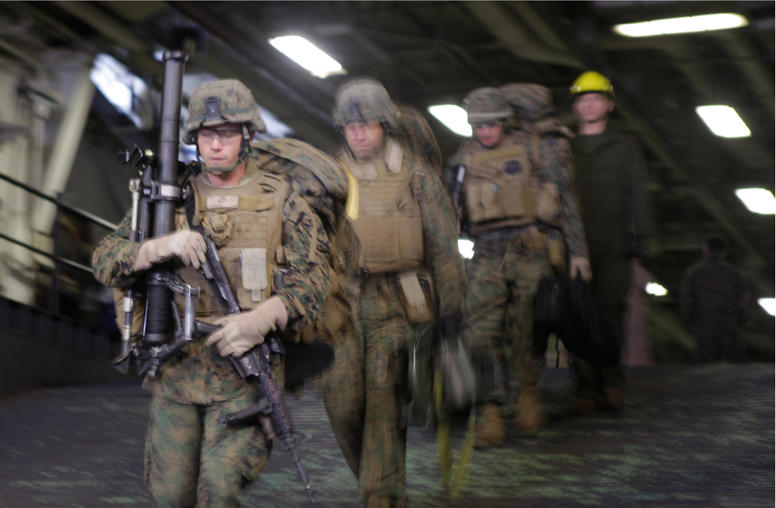
Strengthening the Civilian-Military Link: USIP and Navy-Marine Corps Coordination
The role of the Navy and Marine Corps is critical to the growing importance of the Asia Pacific region in national security strategy. Recently, conflict management and peacebuilding experts from the U.S. Institute of Peace participated in the Navy’s biggest amphibious exercise in a decade, Bold Alligator, as part of USIP’s expansion of civilian-military cooperation and training.
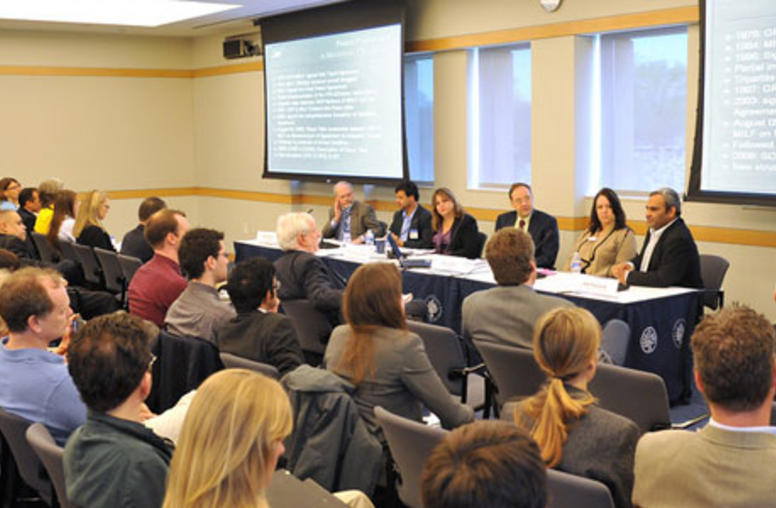
Peacekeeping without Guns
Experts on nonviolent peacekeeping presented their methodologies, lessons learned, and the way forward for the innovative field at the U.S. Institute of Peace (USIP) on March 21, 2012.
Commission of Inquiry: Nepal 90
Commission of Inquiry: Commission of Inquiry to Locate the Persons Disappeared during the Panchayat Period Duration: 1990 - 1991 Charter: Order of the Prime Minister Commissioners: 4 Report: Public report